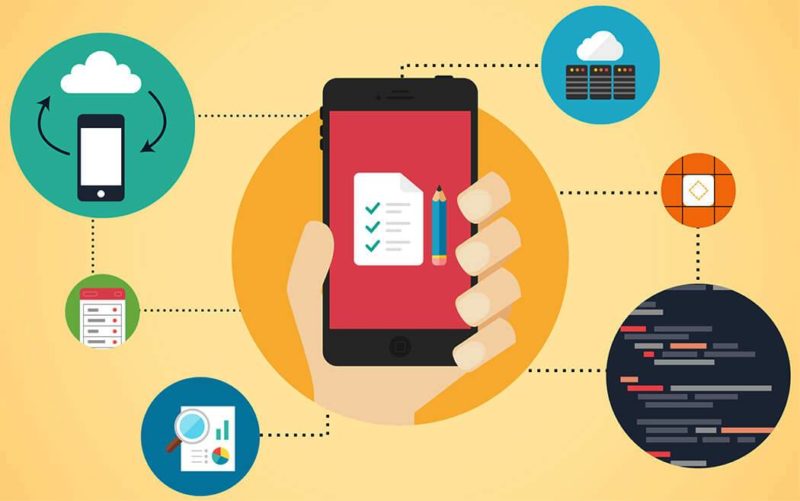Mobile app testing is essentially related to using different types of modern tools. In the current web Development Industry, they are thousands of tools that developers can use to test their mobile web applications. Among all these tools, there are various affordable options as well. These choices are very beneficial for individual developers who are short on money or small start-up companies that cannot afford to invest a huge amount in any development project. In this article, we are going to discuss some of the best mobile app testing tools that can help you to handle and implement all mobile app testing strategies. All these tools are pretty affordable and can help you utilize the full potential of your mobile app testing framework.
Before discussing the different types of tools for mobile app testing, we need to understand the basic definition of this testing mechanism. We will also discuss some of the crucial advantages of this testing strategy.
What is Mobile App Testing
As the name suggests, this is a process of testing the functionality of mobile applications and websites. The developers test the mobile applications based on certain defined factors. These factors include usability, functionality, and consistency of the mobile application. The developers can test the mobile applications with the help of automation testing and manual testing as well. The primary goal of this process is to ensure the smooth and simple functioning of the web application. All these steps are highly essential to determine whether the mobile application is ready to be released to the end-users.
Automation Testing
Automation Testing is a process of testing mobile applications with the help of predefined automated test scripts. Developers mostly use this testing mechanism to test the redundant processes in an app testing life cycle. Thus, automation testing helps to save a lot of time and effort in the app development process. This entire testing process does not involve any human intervention, excluding the Automation test script development process. Although, developers must remember that it takes a pretty huge initial investment to introduce Automation testing in the test environment.
Manual Testing
Manual Testing is just the opposite of Automation Testing. In this process, all the testing stages are conducted by human testers. So, it is a slower process compared to automation testing. Conducting the redundant process with manual testing wastes a lot of development time and budget. However, the developers must remember that certain processes are impossible to conduct with automation testing. For instance, it is impossible to test the positioning of the visual elements without the watchful eyes of a human tester.
So, the most consistent testing mechanism includes proper coordination between automation and manual testing.
What are the Prime Benefits of Mobile App Testing
Now that we have discussed the basic principles of Mobile App testing, it is time to understand its benefits. Let us take a look at some of the factors that make mobile app testing a crucial part of app development:
- Conducting Business: In the present Technological generation, portability is one of the most important factors that users and companies consider. So, mobile apps play a major role in the online business sector. For instance, eCommerce companies benefit a lot from these apps. Since business consists of sensitive data like transaction details, mobile app testing is very important.
- Proper Functioning: A buggy interface is the last thing that any user would want. So, App testing ensures that the web application is stable and ready for the final release. A properly Functional Web application also helps to maintain the loyalty of the users and increases user retention.
- Maintaining the Brand Image: Brand image is very important in this competitive industry. A company is well aware that one faulty mobile application is enough to shatter the brand image they have developed over several years. So, proper web testing helps to maintain the expectations of the end-users.
- Expanding the User Base: Audience retention and bounce rates are the two major factors driving the growth of a company. Audience retention means the number of users that continue to use your applications. On the other hand, bounce rates mean the number of users that use your app for the first time and never return. Mobile App testing helps to ensure that you can increase audience retention and reduce bounce rates.
The Best & Most Affordable Tools for Mobile App Testing
Now that we have caught up with all the basic information about mobile app testing, it is time that we focus on the main segment of this article. Let us take a look at some of the best tools for Mobile Apps testing. All these tools have been handpicked based on their usefulness and user reviews.
- LambdaTest Mobile App Testing
LambdaTest allows the users to perform mobile app testing on a secure device lab of 3000+ real devices. Using this platform, you can test the functioning of your web application on a Cloud Platform. This means that you can access your testing devices and the final test reports from anywhere in the world. The LambdaTest Cloud also ensures faster and reliable test results with wide test coverage. Moreover, this platform provides a very simple interface for the testing mechanism. For instance, the testers can simply upload the mobile app on the cloud server, launch the server and begin the testing process.
LambdaTest is very supportive of individual testers and new companies. So, they provide various attractive plans for their services. Lastly, you can use this tool to perform geolocation testing on your mobile app. Currently, it allows performing this test in more than 50 countries—geolocation help to ensure that your web applications are not bottle-necked by any country barrier.
- Test Complete
Test Complete is one of the few tools that helps you to run multiple repetitive UI tests over the application framework. Moreover, you can also use this tool to test the functioning of hybrid mobile applications. It supports the testing of mobile apps for both Android and iOS Platforms. You can use this tool on both real devices and emulators. It has various tools to develop automated test scripts. However, you also have the liberty to import these test scripts from other programming languages as well. It also allows you to reuse a massive portion of the code for all the repetitive tests in the app testing life cycle. Test Complete is one of the veteran tools for mobile app testing that has still managed to stick around. You can find many positive reviews about this tool on the internet.
- Test IO
Test IO allows you to test the functioning of your web application in real-time. This means that your business-oriented mobile apps can work smoothly on all OS platforms. These professional tools are a major benefit for any test environment. For instance, these tools can instantly detect bugs even before the testers can notice them. Every mobile app development is different in terms of client requirements and app nature. So, the flexible nature of Test IO helps to understand these variations and provide faster test results. Thus, developers can use this tool to deliver hug-quality custom apps to the end-users quickly. Lastly, you can use Test IO to remove all forms of QA Bottleneck from your web application. This process ensures that the application can meet the demand of the company and the client.
- Appium
Appium is often considered to be one of the mobile app testing tools that are currently used by professional testers. Using this tool, you can test the functioning of mobile websites and mobile tools. You can also test the functioning of hybrid mobile applications with the help of Appium. You do not have to meet the requirements for modifying the codes on Appium. This is because the universal framework of Appium allows you to simultaneously develop and test apps for both Android and iOS platforms. Appium also helps to perform automated functional testing on the web application. With this process, you can ensure the overall functioning of the web application. In this competitive market, you cannot afford to alienate any industry segment based on device or platform incompatibility.
Recently, Appium has gained a lot of satisfied users all over the world. They have been redefining their UI to attract the attention of beginners.
- Robotium
Robotium is one of the few tools with great potential but is bound by certain restrictions. For instance, it can only handle Android applications under a single automated testing framework. This tool uses JavaScript to prepare all the test scripts for the automation testing phase. This tool serves a specific purpose for performing black-box testing on all Android Applications. You would require certain other tools to ensure the smooth functioning of Robotium. For instance, you need JDK, Android SDK, Eclipse, and Android Development Kit to perform all the basic testing processes. Using this tool, you can test the functioning of both native and hybrid mobile applications.
With the help of Robotium, the developers can scan the Android Activities to write function, system, and user acceptance test cases. Recently, Robotium released a new version that increases the stability of this mobile app testing tool.
The Conclusive Views
So, we can conclude that Mobile App testing is highly essential to deliver high-quality applications to the end-users. Moreover, it is also obvious that the mobile app testing tools play a vital role in this entire process. In this article, we discussed some of the best tools that are not only pocket-friendly but also highly efficient. The developers must remember that they must consider their personal preferences and project requirements before making the final decision. These applications also provide an excellent practicing opportunity for beginners in the mobile app testing industry. With lots of practice and dedication, the developers will quickly master the script creation and testing analysis process. All the applications that we discussed in this article will help the developers to have full control over the app testing process.
The Liberty in mobile app testing process helps the developers to develop and test innovative mobile applications freely. This is one of the most important factors for developing better mobile apps in the coming years. The expertise in mobile application testing will also help the testers to build a bright career in the coming years. Many experts have already predicted that mobile apps will become the pillars of future innovations.





![[LISTS] Best Chat GPT App for iPhone – Can You Handle the Suspense? Best Chat GPT App for iPhone](https://www.techinpost.com/wp-content/uploads/Best-Chat-GPT-App-for-iPhone-324x235.png)


